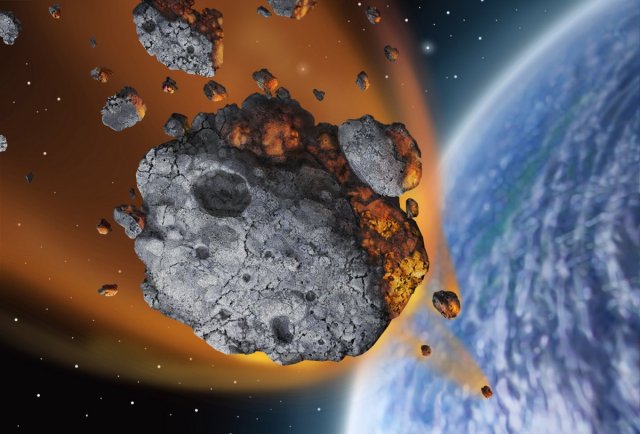Phosphorous Responsible for Life on Earth Got Here via Meteorite
Sometimes meteorites hitting the Earth is bad. Other times it causes all life on Earth to be possible.

Objects from space crashing into the Earth is generally considered pretty terrible. We’d like to keep it from happening in the future, but it turns out that a meteorite that struck the Earth billions of years ago is what’s responsible for all life on our planet. At least that’s the latest theory from University of South Florida Assistant Professor of Geology Matthew Pasek.
Pasek and his team believe reactive phosphorous — a crucial ingredient for early life — came to Earth in the form of meteorites. They found evidence of phosphorus in limestone from the Archean eon. They believe that as meteorites bombarded the Earth during the Archean and Hadean eons, the reactive phosphorous was released into water from minerals in the meteorites.
The team showed evidence that reactive phosphorous was abundant 3.5 billions years ago, and that by its incorporation into water it formed prebiotic molecules. Pasek said:
Meteorite phosphorus may have been a fuel that provided the energy and phosphorus necessary for the onset of life. If this meteoritic phosphorus is added to simple organic compounds, it can generate phosphorus biomolecules identical to those seen in life today.
This could also provide an answer to the question of why we aren’t seeing new lifeforms constantly developing. Pasek points out that the phosphorous chemistry of the Earth billions of years ago is very different than it is today. The reactive nature of the early meteorite phosphorous could also explain how RNA-based life was able to synthesis phosphorous.
There are other natural sources of phosphorous such as lightning strikes, but Pasek says none of them could have produced the quantities necessary for life to form.
Maybe if Curiosity can’t find any life on Mars we can just start flinging phosphorous-rich rocks at it and hope for the best.
(via Phys Org, image via State Farm)
- 400-year-old plants have started sprouting new growth
- There are new kinds of bacterial life in Lake Vostok
- Lake Whillans could have signs of the first subglacial life
Have a tip we should know? tips@themarysue.com